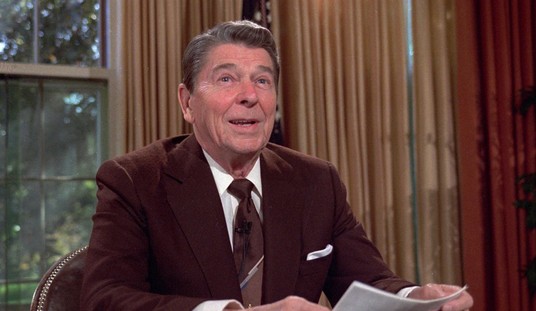As unrest begins to spread across the Middle East, the news is starting to focus on oil. Some sample headlines are: the start of a civil war in Libya has sharply increased oil prices in Europe. Oil prices surge in Asia as Libyan tensions escalate. “The main driver is really the unrest in the Middle East,” said Victor Shum, senior principal for Purvin and Gertz energy consultants in Singapore.”
He added that fresh violence in Organisation of Petroleum Exporting Countries (OPEC) member state Libya was igniting fears of instability spreading throughout the key oil-supplying Middle Eastern and North African region.
Although the troubles in Libya have grabbed the headlines, its effects on production are limited. Analysts are more worried that the troubles in Bahrain may spread to Saudi Arabia. “Protests in Bahrain, provoked by discontent among the majority-Shiite Muslim population, have sparked concern violence will spread to neighboring Saudi Arabia, which holds one-fifth of the world’s oil. Saudi Arabia has a Shiite minority concentrated in its eastern oil-producing hub.”
Despite the looming threats to oil supply, the administration has remained steadfastly opposed to offshore drilling. U.S. Sen. David Vitter says he remains frustrated at the inability to resume drilling in the Gulf. “Eight months after the Deepwater explosion, there’s still not a single, not a single, deepwater exploratory permit that’s been issued.”
Vitter said the net result is that although the Obama administration did officially lift the ban on deep-water drilling, federal officials are still effectively keeping a lid on it. “This is a shutdown, this is a defacto moratorium. We’re all feeling it along the coast, and in our Louisiana economy,” Vitter said.
A sudden reduction in global oil supplies would lay bare the entire rotten edifice of Western wishful thinking which neither carbon trading nor Green Energy could substantially ameliorate. Lawrence Solomon at the Financial Post believes that a combination of suicidal energy policies and diplomatic fecklessness have destroyed the West’s ability to respond to a sudden disruption in supply which would in any case be far worse than that of 1979.
Where once the West could count on most of the Middle East’s oil exporters to rally to its support in times of crisis, today the West can count on none. Where once all in the Middle East understood that American military power would keep the sea lanes open at all costs, today most in the Middle East see the U.S. as a declining, largely impotent power. When the next oil crisis hits, the West will no longer be able to count on the co-operation of Middle East nations to limit anarchy in oil markets and economic convulsions at home.
In that scenario, President Obama could neither talk nor produce his way out of trouble. But even if the West could induce its allies to boost production, their ability to fill in for one or more oil-producing nations knocked offline is smaller than it used to be. MSNBC writes “a big issue for the oil market is whether OPEC has sufficient spare capacity to bring to the market in the event of a material supply disruption. The International Energy Agency estimates OPEC’s spare capacity fell in December below the 5 million barrels a day for the first time in two years.” An Oil Drum post argues that OPEC’s stated reserves are significantly below their stated value. A separate post examined the question of Saudi reserves in the face of production data that has been in actual decline.
The rest of the Middle East claims huge reserves, too, but looking at the Mideast in total doesn’t give a much more favorable picture. While production is a bit higher in total now, exports (in green) are down from the 1970s because of rising consumption.
If energy prices go up, what happens next? For one they would probably drive up food prices which would in turn lead to more unrest. Steven Erlanger of the New York Times writes that “higher crude prices could lead to further increases in food prices. The high cost of food has already led to unrest in several countries, even before political revolts began in the Middle East.” That specter was raised by no less than Mohammer Khadaffi’s son, who argued that civil war could destroy the oil infrastructure, which in turn would starve everybody.
We will have a civil war like in 1936. American Oil Companies played a big part in unifying Libya. Who will manage this oil? How will we divide this oil amongst us? Who will spend on our hospitals? All this oil will be burnt by the Baltagiya (Thugs) they will burn it. There are no people there. 3/4s of our people live in the East in Benghazi, there is no oil there, who will spend on them? Your children will not go to schools or universities. There will be chaos, we will have to leave Libya if we can’t share oil. Everyone wants to become a Sheikh and an Emir, we are not Egypt or Tunisia so we are in front of a major challenge.
Just how serious things have become is expressed in the young Khadaffi’s plaintive message: how can we live without the despicable and hated infidel, without whom we would have no oil, remain disunited and cut our own throats? But that will not stop them from doing it anyway, because in the next breath Khadaffi vowed to fight to the end. Bloomberg reports that other governments plan to subsidize food prices in an act of self-preservation. “Governments worldwide will increase their role in global food markets and may boost stockpiles and subsidies or impose trade curbs to head off the protests that have rippled through the Middle East, commodity traders said.” They will try to appease the masses with bread in order to avoid being fed to the lions at circuses. They will also have to subsidize locally consumed fuel. How will they pay for it? Probably by passing on the costs to the despicable infidel without whom they would starve or cut their own throats. After yelling ‘come back, Shane, come back’, the next cry is ‘pay more, Shane, pay more’.
That would knock the props out from under any “economic recovery” the West has planned but it would be nothing so bad as the misery that would descend on the Middle East. A period of easy money made it possible for the population to rise dramatically. That period is now coming to a close. Reality, long banished to the sidelines, is coming back to center stage. Now the youthful population is about to see the rug pulled out from under them just as they reach an age when they need a job. There’s a risk that an entire generation can grow from adolescence to adulthood without becoming economically productive.
The MERIA Journal says that after a long period of explosive growth, population increases in the Middle East are beginning to stabilize. This has created a window of opportunity in which a temporarily youthful population can build up their societies without bearing the crushing burden of a large aging population. But if the region misses this window, it bodes ill for the future. And there’s every chance the window will be missed.
A destructive cycle has set in whereby young people are prepared to wait unemployed for years in hopes of securing a public sector job at higher wages and more security than available in private firms; in response to students’ dreams of public sector jobs, the education system has become oriented to preparing bureaucrats rather than providing the skills needed by the private sector, with the result being that private employers place little value on education credentials and so offer graduates lower wages than they feel they deserve. The upshot is substantial youth unemployment, pressure on governments to hire people needlessly, youth with training inappropriate for the needs of the labor market, and private firms unable to find locals with adequate skills for the high wages they expect. This problem occurs across the region outside Israel, not just in oil-rich countries but also in such poor countries as Egypt.
Waiting unemployed for years in hopes of securing a public sector job? It almost sounds like Hope and Change.
But the current wave of unrest may simply be the leading edge of a much larger tsunami. What happens when vast numbers of people grow up without any prospects? The doomed youth of the Middle East can still export trouble, already the principal commodity of failed states like North Korea, the world leader in international blackmail. The prospect that hundreds of millions of people may find themselves in a future sans, jobs, sans oil and sans food and flush with nukes is a frightening one indeed. The challenges facing the region, which have only been highlighted by the recent unrest, underscore how vital it was to have conducted a sustained drive to reform the region. As it turns out, the main problem confronting the Middle East was not Israel, but the Middle East itself. As Saif Khadaffi said after extolling the central role of oil:
We all now have arms. At this time drunks are driving tanks in central Benghazi. So we all now have weapons. The powers who want to destroy Libya have weapons. There will be a war & no future. All the firms will leave, we have 500 housing units being built, they won’t be completed. Remember my words. 200 billion dollars of projects are now underway, they won’t be finished.
You can say we want democracy & rights, we can talk about it, we should have talked about it before. It’s this or war. Instead of crying over 200 deaths we will cry over 100,000s of deaths. You will all leave Libya, there will be nothing here. There will be no bread in Libya, it will be more expensive than gold.
Niall Ferguson remarked that the Fall of the Berlin Wall was fundamentally different from the collapse now pushing over regimes across the region because in the case of Eastern Europe, the US had been supporting the principal opposition groups for decades. Reagan was ready to reap the harvest because he had sowed the seed. President Obama’s take-the-credit-for-whatever-happens approach bids fair instead to reap the whirlwind. What happens next is anybody’s guess, but it is fairly certain to be beyond the powers of mere public relations or a teleprompter.
BTW, one our Belmont Club stalwarts, Leo Linbeck III is going to be interviewed by Dennis Prager on Monday, 2 pm Eastern. He may be discussing an important new development in the state’s response to Obamacare. Don’t miss it.
Leo’s interview has been postponed. I will keep people posted.
“No Way In” print edition at Amazon
Tip Jar or Subscribe for $5










Join the conversation as a VIP Member